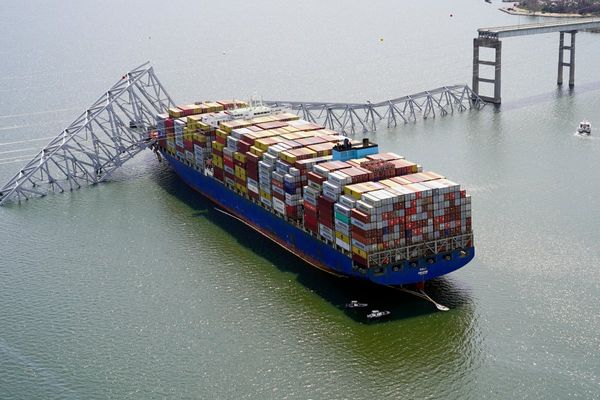
The Palestinian foreign minister has described the UN security council resolution endorsing Donald Trump’s plan to end the war in Gaza as a necessary first step on a long road towards peace, even as Hamas rejected it as a form of international guardianship with which it will not cooperate.
Arab state leaders who have reluctantly adopted the plan said the US urgently needed to set out the composition of the proposed Palestinian technocratic committee that is to deliver services inside Gaza, as well as the leadership of the international stabilisation force (ISF), which is supposed to oversee security. Membership of the board of peace, the body that is to oversee the ISF and a Palestinian civilian police force also remains unknown.
Hamas, still dominant in Gaza, also rejected the requirement to decommission its weapons, saying that had not been part of the original agreement. “Assigning the international force with tasks and roles inside the Gaza Strip, including disarming the resistance, strips it of its neutrality, and turns it into a party to the conflict in favour of the occupation,” the militant group said.
“Any international force, if established, should only be present at the border to separate the forces and monitor the ceasefire, and it should be under full UN supervision and act solely in coordination with the Palestinian institutions, without the occupation having any role in this.”
A British diplomat said weapon decommissioning would be the most difficult part of the process and was only likely to take place in the context of a full Israeli withdrawal from Gaza. Many Palestinians are unhappy that the UN resolution only set out the most conditional path to a Palestinian state that brings together Gaza and the West Bank.
But Varsen Aghabekian Shahin, the Palestinian foreign minister, said: “The UN resolution is the first step in a long road towards peace. That step was needed because we could not embark on anything else before we had a ceasefire.”
She said that although the US president’s plan alluded to possible Palestinian statehood taking place only after the Palestinian Authority carried out reforms, that issue could be taken up later. “As long as these elements are in there, we’re happy with this first step,” Shahin said.
Mahmoud Abbas, the Palestinian Authority president, this month agreed to work with the French president, Emmanuel Macron, on the drafting of a new constitution for the authority, the precondition for holding long-delayed elections and cleansing the organisation of endemic corruption.
The security council resolution was passed on Monday by 13 votes to 0, with China and Russia abstaining.
The US ambassador to the UN, Mike Waltz, said at the beginning of the debate: “This resolution presents a possible path to a Palestinian state if the Palestinian Authority meets the conditions. A vote against is a vote to return to war.”
Speaking after the resolution’s endorsement he claimed it “showed the UN could remain a beacon for peace, and not just a bystander”. He added it would allow for a Gaza Strip that was “finally free of Hamas’s terror and reign” and that the vote allowed the Palestinians a future where they could determine their own identity.
Ultimately the plan’s future depends on Trump’s willingness to remain engaged, including by putting effective pressure on the Israeli government not to use the many opportunities in the resolution’s text not to withdraw from Gaza.
Much of the reaction to the UN resolution inside Israel was hostile, although Benjamin Netanyahu, the Israeli prime minister, welcomed it, saying: “Israel extends its hand in peace and prosperity to all of our neighbours and calls on them to normalise relations with Israel.”
“We believe that President Trump’s plan will lead to peace and prosperity because it insists upon full demilitarisation, disarmament and the deradicalisation of Gaza,” including, the prime minister’s office added, receiving the remains of the deceased hostages left in Gaza “with no delay”.
The Israeli opposition leader, Yair Lapid, meanwhile, accused Netanyahu of having turned a “blind eye” to Hamas arming itself over the years, describing it as a “terrible strategic mistake, and it’s good that the Americans put an end to it”. He added: “The most rightwing government in the state’s history is officially abandoning annexation and defining principles for cooperation with the Palestinian Authority.”
The UK managed to insert into the resolution text a reference to the delivery of aid in line with international law. That keeps open a role for Unrwa, a body endorsed by the international court of justice, to deliver aid. The text, however, only made specific reference to the UN, the Red Crescent and the Red Cross.
The UK is also submitting ideas to the US on the disarmament of Hamas based on its experience with the IRA in Northern Ireland. But it regards the issue as the most difficult to resolve and it will largely depend on the political context. The security council text gives a role to the Palestinian police and to the ISF in the process of disarmament.







